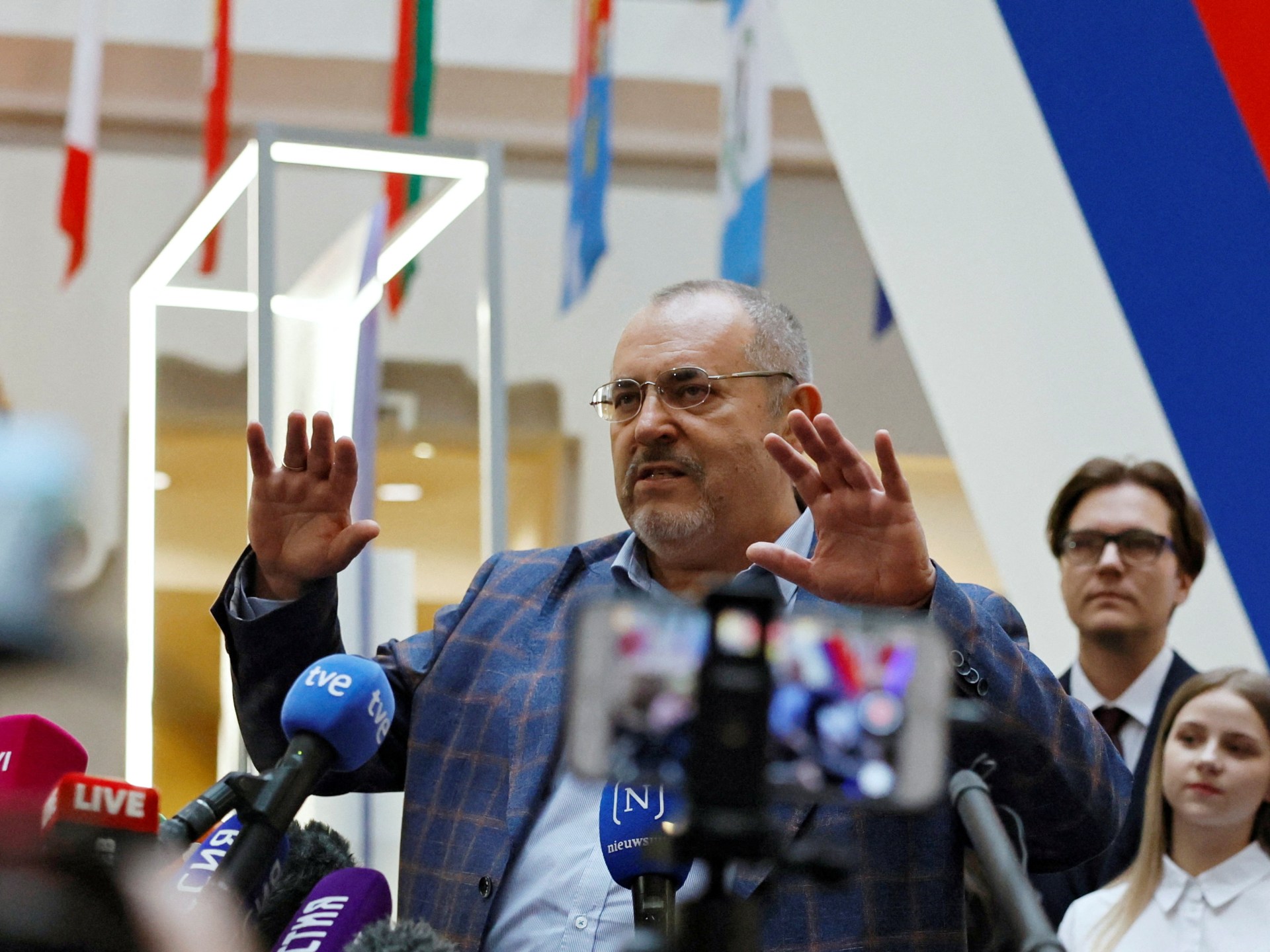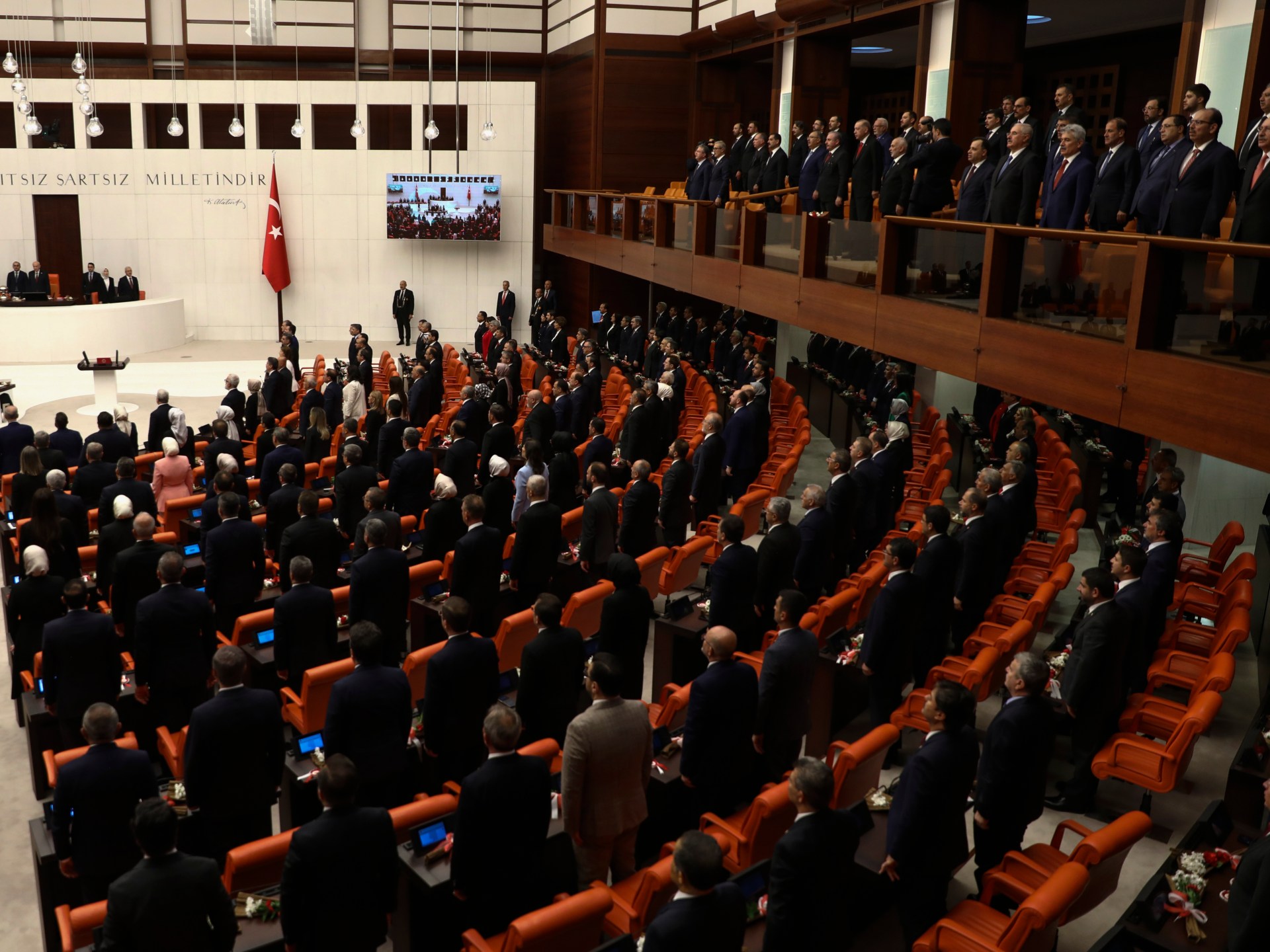
In a new media landscape dominated not by Western media giants but by Instagram Reels, TikTok videos and YouTube Shorts, Israel’s ongoing war in the besieged Gaza Strip is not just being televised.
Viewers around the world, particularly young people, have been watching in real time on their favorite social media platforms for over a month the devastation wrought by Israel’s indiscriminate bombing of the Palestinian enclave. Anyone with internet access has seen countless videos of babies torn apart by bombs, women crushed under tons of concrete, and mothers holding the bodies of their children.
Israel, of course, continues its usual efforts – and more – to control the narrative about its bloody wars and decades-long occupation.
It does not shy away from branding as “terrorists” and murdering Palestinian journalists who work tirelessly to tell the world the truth about Gaza. According to the Committee to Protect Journalists, Israel killed at least 53 journalists and media workers in the last war alone, mostly through targeted airstrikes alongside their family members. Al Jazeera Arabic’s Gaza correspondent, Wael DahdouhHe lost his wife, son, daughter and grandson in such an attack. He received the news while on the air.
And Israel does not allow foreign journalists to enter Gaza and report freely on what they see. CNN’s Fareed Zakaria recently admitted that the Israeli military is currently only allowing foreign journalists into the war-torn Gaza Strip who have agreed to “submit all materials and footage to the Israeli military for review before publication.” Zakaria said CNN agreed to these terms “to provide limited insight into Israel’s operations.”
But despite all these efforts, thanks largely to social media, Israel is no longer able to hide the truth about its behavior in Palestine. It can no longer control the narrative and public opinion on Palestine. As the mainstream media loses its ability to single-handedly decide what Western, and to some extent global, audiences can learn about the situation in Palestine, the brutality of the Israeli occupation is being laid out for all to see.
Now social media users are openly mocking Israel’s desperate attempts to control the narrative of its war on Gaza and are quickly debunking the Israeli lies spread by the mainstream media. On November 29th the #We will not be silenced The campaign was launched across all social media platforms and encouraged posting The E.g. a graphic or picture of you covering your mouth with one hand and a relevant message written on the other hand or a poster. Since its launch, it has received hundreds of thousands of views across all platforms and will continue to gain traction as social media accounts feel the impact of shadow bans, censorship and intimidation.
Not only Israel knows that it is losing the PR war, but so does its largest financier and enabler. Last week’s announcement of a temporary ceasefire that is about to expire showed that the United States is as concerned as Israel about changing public opinion on the conflict.
Politico reported that senior Biden administration officials were concerned that the temporary ceasefire would “give journalists wider access to the Gaza Strip and the opportunity to further illuminate the devastation there and turn public opinion against Israel.” In other words, U.S. officials are aware of the direction in which public opinion has shifted since this bombing episode began and fear that an influx of journalists into the Gaza Strip will reinforce the genocide that Israel has committed there with their permission and support , could reveal even further.
However, Israel and the US did not lose the all-important war on narratives just because of their recent war on Gaza. The current attack on Gaza has only accelerated Israel’s weakening hold on the media narrative and public opinion. In March of this year, many months before the latest round of violence began, Gallup published Data This showed for the first time ever that “Democrats’ sympathies in the Middle East now lie more with the Palestinians than with the Israelis, 49 percent versus 38 percent.” This shift in Democrats’ sympathies suggests a weakening of the mainstream media monopoly on that Israel-Palestine narrative. Meanwhile, many in the Republican Party have also begun to rethink the relationship between the United States and Israel Development Assistance. Former US President Donald Trump’s “America First” doctrine has left many Republicans questioning whether supporting Israel with regular military aid should remain a party foreign policy priority.
Since October 7, Meta has largely responded with censorship to accounts and posts that draw attention to the mass murder of Palestinian civilians Reports Over 90 percent of pro-Palestinian content was deleted. Now there are concerns about how X will respond to Israel’s PR pressure.
This week Elon Musk, CEO of approval of an anti-Semitic post on his platform. As part of the propaganda tour, it was agreed that Musk’s Starlink, a satellite internet service, could only be used in Gaza with the consent of the Israeli government. The Israeli occupation manages and controls the flow of water, electricity, food, humanitarian aid – and now Musk’s internet services – to Gaza, but remains adamant that it is not an occupier.
Israel itself is responsible for its increasingly negative image in the international community.
You cannot expect the world to turn a blind eye to the genocide it is committing in plain sight with the support of the United States. The brief ceasefire – which allowed some humanitarian supplies to reach the besieged enclave and gave Palestinians a chance to bury their dead and tend to their wounds as best as possible – is expected to end soon. Immediately following the brief ceasefire, Israel is likely to continue its indiscriminate bombing and oppressive total siege of the Gaza Strip. Israel’s war against the Palestinians is far from over, but it has already lost the war of public opinion.
The views expressed in this article are the author’s own and do not necessarily reflect the editorial stance of Al Jazeera.






Recent Comments